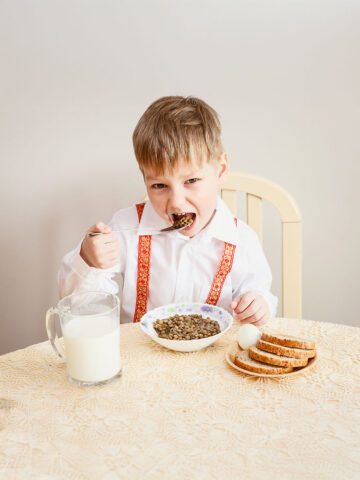A new year is a great time to start new, healthy habits.
Here, CHOC experts share easy tips to take full advantage of a new start by including health and wellness into your family’s routine in the new year.
Be active with your children
Parents can be role models for kids when it comes to activity. In fact, children are more likely to stay active when they are having fun with their parents.
Try using words like “play time” or “fun time” instead of “exercise” or “working out” to make physical activity sound more appealing. Tap into activities or sports that kids like, such as walking around the block, playing catch or soccer, riding a bike, or doing an obstacle course in your backyard.
Try involving the entire family and focus on moving and having fun. Activities such as playing tag, jump roping, dancing and swimming are examples of ways to increase your heart rate. Activities such as tug-of-war, hula hooping or playing on the monkey bars can increase your strength. Activities such as stretching and bending down to touch your toes can increase your flexibility.
Limit screen time for the entire family
Children should not have more than two hours of screen time each day. Screen time is considered watching TV; playing video games; or using a computer, tablet or smartphone.
In fact, children are more likely to eat foods that are high in fat, sugar and sodium during long periods of screen time that surpass their suggested serving size.
Additionally, time spent on screens reduces physical activity time, which increases one’s risk for diabetes, high blood pressure and heart disease.
Drink plenty of water
Even in cooler winter weather, it’s important that children and adults alike stay hydrated.
Provide water as a source of rehydration, not fruit drinks. Many fruit drinks are advertised as “healthy” because they have images of fruit on the package, but they are often made with a small percent of real fruit.
To jazz up water, try adding slices of real fruit in the water for more flavor.
Prioritize mental health
Mental health is just as important as physical health – especially in children’s increasingly fast-paced world.
Parents should regularly check in with their children and keep the lines of communication open. Do this by scheduling hang-out time either one-on-one or as a family. It can be as simple as watching a show together or doing a craft.
At dinnertime, try playing “peak and valley.” Go around the table and ask everyone to share the best and hardest parts of their day. This is a great way to learn about your child’s day and see how they are feeling.
Employ an open-door policy to ensure kids know they can talk to you anytime and have you as an advocate.
Take care of yourself, too. Parents need self-care to keep in tip-top parenting shape. Practicing self-care also models coping skills for children.
Get more expert health advice delivered to your inbox monthly by subscribing to the KidsHealth newsletter here.
Get more safety and injury prevention tips from CHOC experts
More children are affected by injuries than all other childhood illnesses and diseases combined. Most of these injuries are predictable and preventable. Here’s how to keep your child safe.





